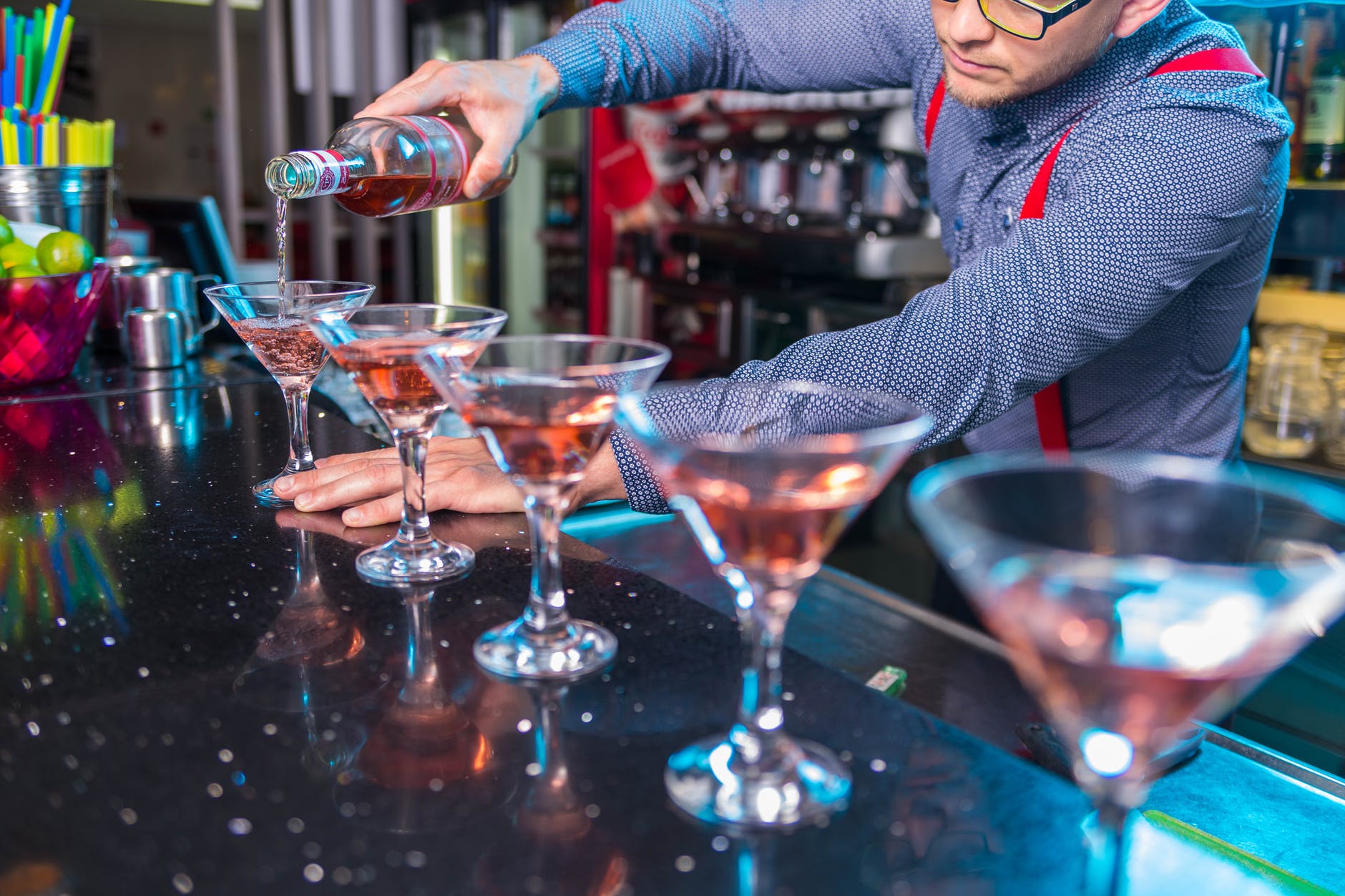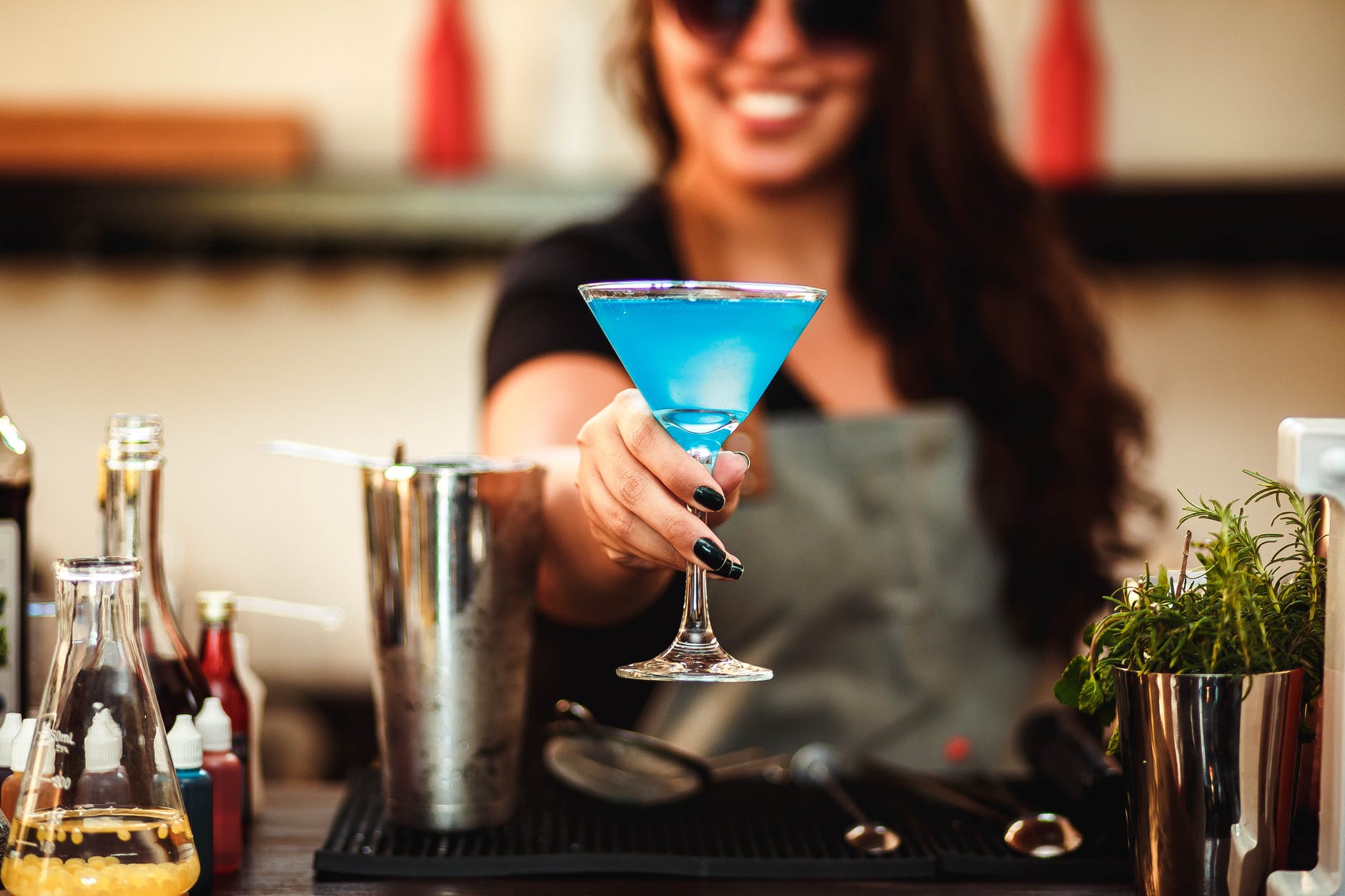4 Steps for getting a liquor license in California
If you're starting a business in California that sells alcohol, such as a fine dining restaurant, then you will need to apply for and be granted a liquor license from the California Department of Alcoholic Beverage Control (ABC).
When opening a restaurant, selling liquor is often a key part of the business model, with profit margins as high as 80%. However, obtaining a liquor license is not always a straightforward process, and there are undoubtedly plenty of hoops you need to jump through before you're legally allowed to sell alcohol in the state of California.
Here are the key steps you need to take in order to obtain a liquor license in California.
Step #1: Determine the Appropriate Liquor License for Your Business
The reason the process isn't always straightforward is that there are many different types of liquor licenses available in California, and each license permits different types of alcohol to be sold and consumed on the premises.
There are many different types of liquor licenses in California, but those apply to eateries include the following:
- 40: On-Sale Beer – Authorizes the sale of beer for consumption on or off the premises where sold. No wine or distilled spirits may be on the premises. Full meals are not required; however, sandwiches or snacks must be available. Minors are allowed on the premises.
- 41: On-Sale Beer & Wine – Eating Place – Authorizes the sale of beer and wine for consumption on or off the premises where sold. Distilled spirits may not be on the premises (except brandy, rum, or liqueurs for use solely for cooking purposes). Must operate and maintain the licensed premises as a bona fide eating place. Must maintain suitable kitchen facilities, and must make actual and substantial sales of meals for consumption on the premises. Minors are allowed on the premises.
- 47: On-Sale General – Eating Place – Authorizes the sale of beer, wine, and distilled spirits for consumption on the licensed premises. Authorizes the sale of beer and wine for consumption off the licensed premises. Must operate and maintain the licensed premises as a bona fide eating place. Must maintain suitable kitchen facilities, and must make actual and substantial sales of meals for consumption on the premises. Minors are allowed on the premises.
If you're predominantly a bar or tavern, you may also want to consider:
- 42: On-Sale Beer & Wine – Public Premises
- 48: On-Sale General – Public Premises
These licenses do not require food service to be granted, but they do limit the hours during which alcohol can be served and set other restrictions.
There are also different licenses available depending on whether you want to serve alcohol for on-premises consumption or off-premises consumption (such as in a retail setting). The best way to determine which license is right for your business is to consult with an ABC licensing expert or browse the full list of license types yourself.

Step #2: Make Sure Your Establishment Meets the General Requirements for a Liquor License
Each liquor license will come with a set of general requirements that will vary from establishment to establishment and will be heavily influenced by your locality. Most general requirements for a liquor license in California include:
- Local requirements: Before engaging in business, appropriate county or city officials should be contacted to determine if a local business license is required. If this is a new location or one not previously used for this type of business, it is advisable to check with local officials concerning local zoning regulations and the need for a Conditional Use Permit.
- Federal requirements: Before opening an alcoholic beverage business, the applicant should contact the nearest office of the United States Treasury Department, Alcohol and Tobacco Tax and Trade Bureau. If a Federal basic permit or a special Occupational Tax Stamp is required, it should be applied for by and issued to the same persons applying for a license with this department and at the same address.
- Sales Tax Permit: Each alcoholic beverage licensee must possess a seller’s permit from the State Board of Equalization. It is a misdemeanor to sell liquor in California without such a permit.
- Escrow Requirements: If you are buying an existing business or transferring an existing license, you’ll need to establish an escrow for the full purchase amount. The escrow agreement must state that payment can only be completed after the ABC approves the license transfer. You also need to submit a formal notice to your local County Recorder before the transfer is complete.

Step #3: Determine Your Application Fees
Once you have decided on the right liquor license type and ensured you have met the general requirements for applying, you need to ascertain how much you will need to invest in application fees.
From 2023, here are the fee schedules for liquor licenses in California:
- General – Priority (Types 21, 47, 48, 57, 71, 72, 75, 83, 87, 88, 99) – $17,335
- General – Non-Priority (Types 51, 52, 53, 54, 55, 56, 76, 80) – $990
- Type 47 – On-Sale General Eating Place on Public Property – $6,570
- Person to Person Transfer – General License – $1,370
- Person to Person Transfer – Non-General License – $365
- Premises to Premises Transfer (within the same county) – $855
- Premises to Premises Transfer (Intercounty Transfer for General License) – $6,570
You can view the full schedule of license applications and miscellaneous fees on the ABC website.
Step #4: Fill Out the Application Forms
The last step is to go through the application process itself. There are five stages within this process:
1. Pre-Application
The first step is to contact your local ABC district office for a pre-application meeting. Here, an ABC staff member will ask the applicant questions about the proposed operation and determine the type of license needed. The staff member will then advise the applicant on what forms and fees are needed to file the application.

2. Notifications
During the application, the proposed licensee must:
- Post the Public Notice of Application at the premises for 30 days
- Give information to ABC as needed for the investigation
In some cases, ABC may also require the applicant to do one or more of the following:
- Publish a notice in the newspaper
- Mail a notice to all persons living within a 500-foot radius of the premises,
- Obtain proof from the local planning department that the zoning permits an ABC license.
Local officials are also notified by ABC, who decide if the license:
- Would create a public nuisance
- Would cause or add to crime in the area
- Would be contrary to a zoning law
- Is in a high-crime area or an area that has too many licenses and would not serve public convenience or necessity

3. Investigation
ABC will then conduct a thorough investigation, as required by law, to see if the applicant and the premises qualify for a license. It's at this stage that conditions may be added to the license to mitigate any public nuisance that may come from the business.
License conditions are special restrictions placed on a license. Conditions may limit the hours of alcohol sales, the type of entertainment allowed, or other aspects of the business. Conditions may eliminate the need to deny a license or may cause a protestant to withdraw their protest.
4. Final Review
A final review is then conducted by ABC, during which a licensee may be asked for more information or clarification. They will also check over documentation to ensure that everything is in order, that the correct fees have been paid, and that the establishment is ready to operate (not still under construction).
5. Issuance of the License
The final stage is when the license is issued by ABC. Once the license is issued, it must be displayed at the premises in a visible location.
The license is only valid for the specific location, ownership, and type of business described on the license. If any of these things change, the licensee must notify ABC and may be required to obtain a new license. Liquor licenses are valid for one year and must be renewed annually. The renewal process is similar to the original application process.
The average processing time from the date you file your application to issuance is 55 to 65 days. If your application is contested, it could take as long as 175 days.

Get Your Restaurant Off to a Good Start with a Liquor License
Now that you know how to get a liquor license in California, you can move forward with your restaurant plans. Keep in mind that the application process is detailed and time-consuming, so it's important to start early. Once approved, staying on top of the admin associated with your liquor license is a crucial aspect of restaurant management and you should take steps to minimize the risks of having your license revoked.
Opening a restaurant or bar is a big undertaking, but with careful planning and execution, it can be a huge success. At POSTRON, we help restaurant and bar owners to streamline their operations with our all-in-one POS system. With POSTRON, you can take care of payment processing, customer loyalty, inventory, and staff operations all in one place.
To learn more about how we can help you run your business, schedule a free demo today.
